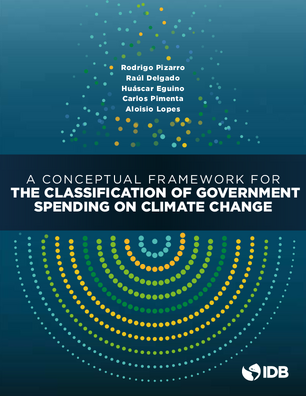A Conceptual Framework for the Classification of Government Spending on Climate Change
Date
Sep 2022
To align public spending with national climate change strategies and the mitigation commitments assumed in the nationally determined contributions (NDCs), the countries of Latin America and the Caribbean (LAC) need to periodically identify climate-related budgetary expenditures and determine whether they have a positive or negative impact. As there is still no internationally agreed methodology to do so, this publication proposes a conceptual framework and methodological guidelines for LAC countries, which allow the identification, classification, and evaluation of green public spending related to climate change, in an integrated approach coherent with current statistical systems. The proposed methodology is consistent with the United Nations System of Environmental Accounts and classification of government functions present in the Public Finance Statistics Framework, both recognized international statistical standards. The methodology uses a double-entry functional classification matrix, which addresses the primary and secondary purpose of weather-related spending and employs a satellite analytical account approach. This is not a single model, but rather a set of methodological definitions that countries can use to build their own budget functional classification systems related to climate change, conduct permanent and sustainable monitoring of this type of green spending, and thus be able to evaluate its results and impacts, providing feedback to the climate-related budget formulation process.




